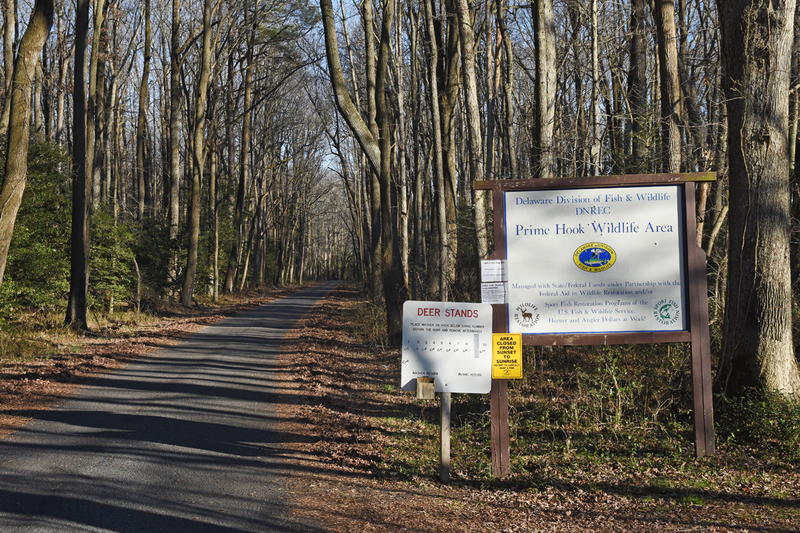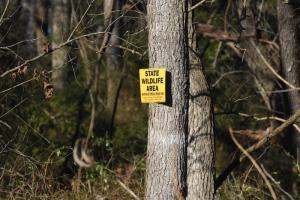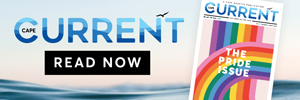State proposes Conservation Access Pass for wildlife areas
Hiking, bird watching or riding a bicycle through one of the state’s wildlife areas may soon come with a price tag.
The state is proposing to require a Conservation Access Pass for anyone using a state wildlife areas, similar to what is already in place at state parks. As proposed, said Division of Fish and Wildlife Director David Saveikis, users would buy an annual or three-consecutive-day pass and carry it with them like a hunting license when using a wildlife area.
The purpose of the new fee, Saveikis said, is to find a fair way to raise money needed to continue maintaining and offering services at the state's wildlife areas.
“Basically, we’re looking to more equitably and fairly spread the costs among the various users,” he said.
What to know about the state's proposal
Workshops
Sussex County - 7 p.m., Tuesday, Jan. 12, at Delaware Technical Community College, Jack F. Owens Campus, William A. Carter Partnership Center Lecture Hall, 21179 College Drive, Georgetown
Kent County - 7 p.m., Wednesday, Jan. 13 at Kent County Administrative Complex, 555 South Bay Road, Dover
New Castle County - 7 p.m., Thursday, Jan. 14 at Ommelanden Hunter Education Training Center, 1205 River Road, New Castle
Conservation Access Pass
Resident annual pass - $20
Nonresident annual pass - $30
Resident three-day pass - $7.50
Nonresident three-day pass - $12.50
Proposed fee increases
Delaware resident hunting license (age 16-64) from $25 to $39.50
Delaware junior hunting license (age 13-15) remains $5
Resident guide hunting license (age 18 and over) from $100 to $159.50
Nonresident hunting license (age 16 and over) from $130 to $199.50
Nonresident junior hunting license (age 13-15) remains $50
Nonresident three-day hunt (age 16 and over) from $50 to $75
Nonresident guide hunting license (age 18 and over) from $300 to $475
Resident hunters choice/quality buck tag from $10 to $20
Antlerless tag from $10 to $20
Nonresident quality buck tag From $25 to $50
Nonresident antlered tag from $25 to $50
Resident waterfowl stamp (age 16-64) from $9 to $15
Nonresident waterfowl stamp (age 16 and over) from $9 to $15
Resident fur dealers from $287.50 to $475
Breeders permit from $11.50 to $17.50
Propagating permit from $25 to $39.50
Resident trapping license from $3.50 to $10
Nonresident trapping license from $25 to $75
Currently, 50 percent to 75 percent of the wildlife program’s operating budget is funded through license fees for hunting and trapping and matching funds from the Pitman Robertson Act – an excise tax on the purchase of firearms and ammunition that realizes $3 from the federal government for every $1 from the state.
Saveikis said the department has seen revenues drop over the years as the demographics of Delaware have changed. One of the more significant changes, he said, is the state’s aging population. Once a Delaware hunter or trapper turns 65, he or she is no longer required to purchase a license. The only requirement is to obtain a License Exempt Number.
“Many [hunters and trappers] buy a license to do their part,” Saveikis said. “But revenues are going down, and inflation has crept up and eaten into our purchasing power.”
According to DNREC, the combined sales of hunting licenses, stamps and tags have decreased from 47,562 in 2008 to 29,285 in 2014. Sales decreased every year from 2008 to 2013, but slightly increased – less than 1,000 – from 2013 to 2014.
Hunting and trapping license fees also will increase under the proposal. Saveikis said the state is proposing a significant increase for hunting fees from $25 to $39.50 for Delaware residents. In-state trapping license fees would rise from $3.50 to $10. Increases to junior licenses and other tags, stamps and permits are also proposed. The last fee increase occurred in 2007, when some but not all hunting license fees were increased.
The new Conservation Access Pass – which would require General Assembly approval – is proposed at $20 for Delaware residents and $30 for nonresidents for an annual pass, and $7.50 and $12.50, respectively, for three-day passes.
The pass would be required only in state wildlife areas owned and administered by the Division of Fish & Wildlife. Areas like Redden State Forest, adminsitered by the Department of Agriculture, would not require an access pass.
Saveikis said the department is trying not to price itself out of the market, but there is a cost of doing business, and wildlife conservation and management of the state’s more than 60,000 acres of wildlife areas costs money.
“There are many users of these areas other than hunters and trappers that are not paying for the management and maintenance,” he said.
Eastern Sussex County wildlife areas include the Assawoman Wildlife Area near Bethany Beach, Prime Hook Wildlife Area adjacent to the national refuge near Milton and the Okie Preserve in Long Neck.
Saveikis said his department has already taken measures to decrease costs, including reducing staff by five full-time positions, closing access to state wildlife areas before and after hunting seasons to reduce road maintenance costs and reducing the number of days state wildlife areas are open to permit hunting. Despite those measures, he said, he projects a $600,000 shortfall in fiscal year 2017.
By increasing fees, Saveikis said, all users could see benefits. He said previously closed portions of wildlife areas could open to certain types of hunting and wildlife watching. Wildlife habitats could improve in wildlife areas for a variety of species. Various hunting-related activities could be added or expanded, including afternoon turkey hunting and a second youth deer hunting day. Opportunities for more trapping could also occur, including marsh trapping earlier in the season on more state wildlife areas and the expansion of fox, raccoon and coyote trapping.
DNREC has planned a workshop for each county, and the public is encouraged to attend and comment on the proposal. Sussex County’s meeting will be held at 7 p.m., Tuesday, Jan. 12, in the William A Carter Partnership Center Lecture Hall at Delaware Technical Community College’s Jack F. Owens Campus in Georgetown.
DNREC has provided an information sheet on its website for review prior to the meetings.
Following the workshops, Saveikis said, an advisory council will make the decision on whether to move forward with the proposal. If given the go ahead, Saveikis said, the department is aiming to put the conservation access pass and increased hunting and trapping fees into effect for fiscal year 2017, beginning July 1.

















































